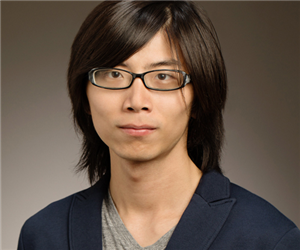Control Seminar
Bridging Control Theory and Machine Learning
Bin HuAssistant Professor of Electrical and Computer EngineeringUniversity of Illinois, Urbana-Champaign
WHEN:
Friday, September 11, 2020 @ 3:30 pm - 4:30 pm
This event is free and open to the publicAdd to Google Calendar
This event is free and open to the publicAdd to Google Calendar
WEB: Event Website
SHARE:

***Event will take place via Zoom. Zoom link and password will be distributed to the Controls Group e-mail list-serv. To join this list-serv, please send an (empty) email message to [email protected] with the word “subscribe” in the subject line. Zoom information is also available upon request to Katherine Godwin ([email protected]).
ABSTRACT: The design of modern intelligent systems relies heavily on techniques developed in the control and machine learning communities. On the one hand, control has been a crucial integral part of modern engineered systems such as commercial aircraft, space vehicles, nuclear plants, and industrial manufacturing systems: the robustness to disturbance and model uncertainty is typically achieved by a closed-loop design equipped with sensing, actuation, and feedback. On the other hand, machine learning has recently revolutionized the field of artificial intelligence (AI) and led to state-of-the-art results in computer vision, natural language processing, and Go. The developments of next-generation intelligent systems such as self-driving cars, advanced robotics, and smart buildings require leveraging these control and learning techniques in an efficient and safe manner. This talk will focus on fundamental connections between control theory and machine learning. In the first half of the talk, we will give a control perspective on machine learning. We will discuss how to view algorithms in supervised/reinforcement learning as feedback control systems. Built upon such a viewpoint, we will also show how to tailor control theory for analysis and design of various iterative learning algorithms. In the second half of the talk, we will present some new performance guarantees of reinforcement learning methods on several control tasks. We will discuss the global convergence and the implicit regularization property of the natural policy gradient method on the mixed H2/H-infinity state feedback design problem and the Markovian jump linear quadratic optimal control problem. A key question that we will discuss in detail is how to ensure stability/robustness guarantees during the learning processes.
BIO: Bin Hu received the B.Sc. in Theoretical and Applied Mechanics from the University of Science and Technology of China in 2008, and received the M.S. in Computational Mechanics from Carnegie Mellon University in 2010. He received the Ph.D. in Aerospace Engineering and Mechanics at the University of Minnesota in 2016. Between July 2016 and July 2018, he was a postdoctoral researcher in the Wisconsin Institute for Discovery at the University of Wisconsin-Madison. He is currently an assistant professor in the Department of Electrical and Computer Engineering at the University of Illinois at Urbana-Champaign and affiliated with the Coordinated Science Laboratory. His research focuses on building fundamental connections between control and machine learning.
 MENU
MENU 
